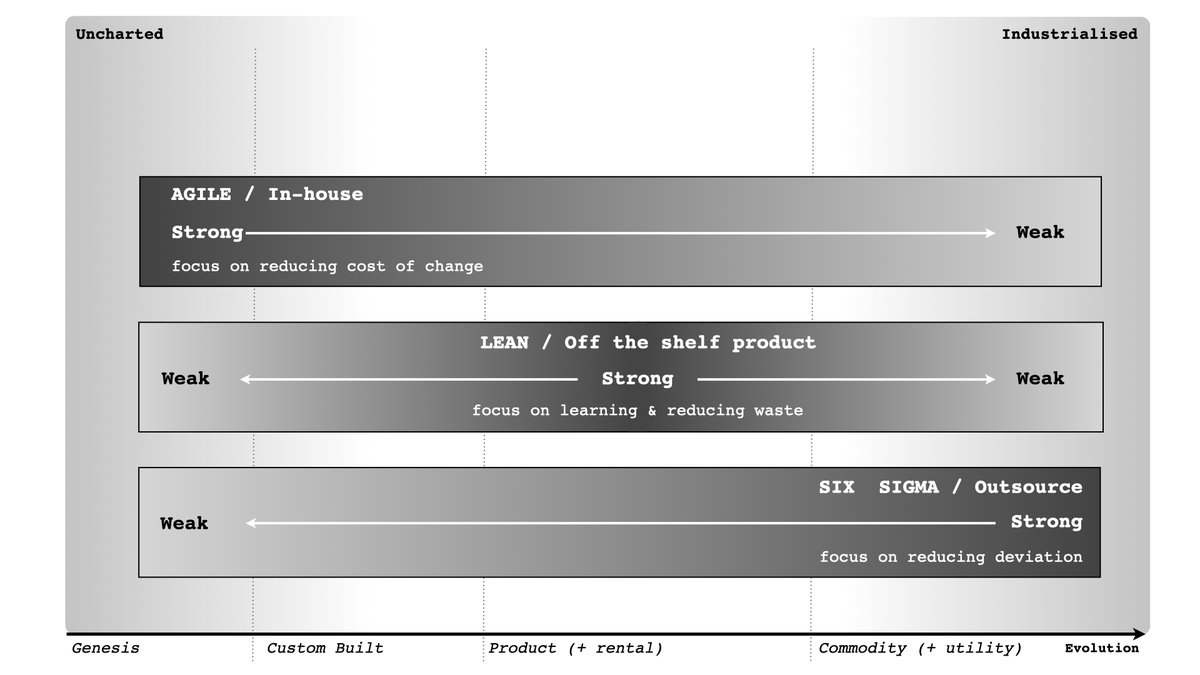
X : Are you a socialist?
Me : My leaning is in that direction, yes. Why?
X : But you're pro markets, pro competition?
Me : Ah, the old right wing myth that socialism is anti-individualistic and pro-collectivist? It's more nuanced than that. It's more "use appropriate methods"
Me : My leaning is in that direction, yes. Why?
X : But you're pro markets, pro competition?
Me : Ah, the old right wing myth that socialism is anti-individualistic and pro-collectivist? It's more nuanced than that. It's more "use appropriate methods"

... i.e. we all belong to many collectives. There is a balance of Me versus We that we need to constantly review as a society. Economic systems (markets or central planning) are just context specific tools.
Many of the problems we face as a society tend to stem from one size fits all dogma of evolving methods whether it's the centrally planning of communists or the laissez faire market of neoliberals. Both extremes fail to consider context ... 

... it's the same with the whole agile vs six sigma debate. They are simply tribes convinced by the rightness of their evolving method to apply everwhere. Whereas in practice both have a context in which they work ... 

... which is why you learn to apply appropriate methods (whether project management, purchasing or economic approach) ... 

... which, of course, you can only do if you can see the context, the landscape itself.
Without this situational awareness then the agile vs six sigma or the free market vs central plan debates will never be resolved. It's just two tribes who can't see the forest for the trees.
Without this situational awareness then the agile vs six sigma or the free market vs central plan debates will never be resolved. It's just two tribes who can't see the forest for the trees.

X : I thought you viewed individualism as a curse?
Me : It is. If unchecked by collectivsm then you end up with a society of "Me" with no "We", a society where it's all about the ethics of choice (transactions) rather than the ethics of care and every horror becomes purchasable.
Me : It is. If unchecked by collectivsm then you end up with a society of "Me" with no "We", a society where it's all about the ethics of choice (transactions) rather than the ethics of care and every horror becomes purchasable.
X : So is collectivsm a curse?
Me : No, it's the antithesis of individualism. It's a recognition that there is a society, that we have a duty to each other and an ethics of care. Humans are social creatures, it's a recognition of this and that there are boundaries ...
Me : No, it's the antithesis of individualism. It's a recognition that there is a society, that we have a duty to each other and an ethics of care. Humans are social creatures, it's a recognition of this and that there are boundaries ...
... for a society, the question is always the balance of Me versus We. When we look at an economic system then the methods we use (leaning towards the Me or learning towards the We) should change as components of our system evolve. 

This is why I don't like the ideas of communists or neoliberals or the current crop of bitcoinistas and their Ayn Rand ideology. They do us no favours with their simple one size fits all dogma.
X : Does that make you pro-collective, anti-individualism?
Me : What? How often do I have to spell this out? It depends upon context. Let us take that HS2 map from 2012 and just apply it shall we ... heaven knows why you can't do this yourself.
Me : What? How often do I have to spell this out? It depends upon context. Let us take that HS2 map from 2012 and just apply it shall we ... heaven knows why you can't do this yourself.

So look at the map, hell I'll even repeat it ... look at it. Do you see one size fits all anyway? Do you see "no" laissez faire, no free market?
No. It all varies with context. This is noddy stuff, playground learning.
Muppet.
No. It all varies with context. This is noddy stuff, playground learning.
Muppet.

... and yes. the methods and techniques vary as the component evolve and yes they will evolve due to supply and demand competition,
X : You don't have to be rude.
Me : Stop stereotyping me with your child like understanding of socialism. Go read some comics or Ayn Rand.
X : You don't have to be rude.
Me : Stop stereotyping me with your child like understanding of socialism. Go read some comics or Ayn Rand.

X : Well, no Government does this.
Me : Really? It's true you can't use appropriate methods without situational awareness but have you looked at China? By that I mean really looked without the racist stereotyping and usual claims of communists or cheap labour?
Me : Really? It's true you can't use appropriate methods without situational awareness but have you looked at China? By that I mean really looked without the racist stereotyping and usual claims of communists or cheap labour?
• • •
Missing some Tweet in this thread? You can try to
force a refresh





